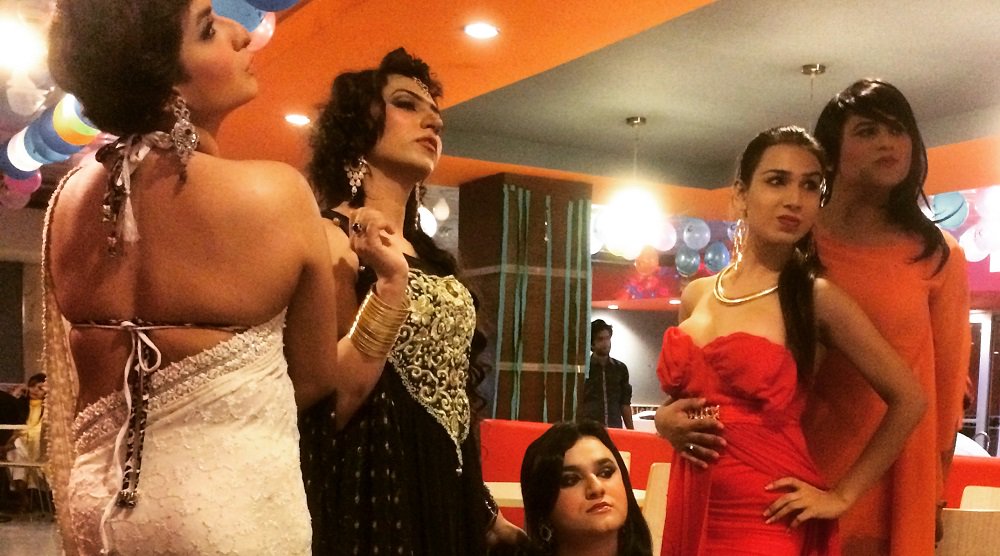What’s life really like for LGBT people in Pakistan?

As the closet doors slowly begin to be prised open on gay life in the Middle East, a new independent documentary is delving into the hidden lives, history and culture of Pakistan’s suppressed – but ever-present – LGBT community.
Poshida: Hidden LGBT Pakistan screens at London’s BFI Flare Film Festival this month, documenting the grim realities of Pakistan’s lesbian, gay, bisexual and transgender community at a time when LGBT human rights are under fire. Holding a mirror up to the Pakistani media, this rare and authoritative investigation spotlights a Pakistani serial killer who preyed on gay men and the hunting of transgender women – and the dark and troubling media circus that ensued.
Britain’s most prominent Muslim drag queen and Attitude Pride Award-winner Asifa Lahore caught up with the the film’s director, British-Pakistani journalist and filmmaker Faizan Fiaz, to find out more about the struggle of documenting the lives of LGBT people in a country where persecution, prejudice and violence towards them is an everyday occurrence…

What made you want to make a film on LGBT life in Pakistan?
I moved to Pakistan in 2007 and was immediately struck and intrigued by the complexities of it’s society. I am a British-born Pakistani, and was brought up with a highly edited image of the country which denied the existence of a great many things including homosexuality and transgender identities. I discovered otherwise of course, and became fascinated by the way that LGBT people manage to exist and their struggles in a country like Pakistan.
Did you face any obstacles whilst filming over a span of 5 years?
The main challenge was getting people to appear on camera. I actually interviewed dozens more LGBT people but very few agreed to be filmed. The other major challenges were the ones that face any new independent film maker: finances, support that kind of thing. Also, my contributors would get very jumpy whenever a situation arose that they felt threatened by, for example a story in the Pakistani press about LGBT issues like a fatwa being issued against the LGBT community or a punishment being meted out against a gay couple or something like that.
How did you go about finding people to appear on camera despite facing risks from the community and authorities?
I met many through friends, some are my own friends, one is a cleaner who works for someone I know also my trusty gaydar! It’s works internationally!
How can the LGBT community in Britain support LGBT Communities in country where it is illegal?
One way is by supporting asylum claims by LGBT Pakistanis. At the moment it’s a long and difficult process to claim asylum as an LGBT person and people who do are subjected to some pretty demeaning processes, after already suffering in a homophobic and transphobic environment. Awareness needs to be raised about how the Pakistani authorities and institutions abuse LGBT people as a matter of course. I’ve heard many stories of police brutality for example, and of course Poshida examines the Pakistani media’s role in promoting a climate of hatred towards them.
What do you think will be the impact of Poshida?
I hope that it will get people talking sensibly about the topic and get them to acknowledge the impact of British colonialism and US foreign policy on the LGBT community. I also hope it opens up discussion about people’s basic right to live without fear of murder, violence and social stigma.
It’s a love letter to Pakistan really, I do love the country very much and I know Pakistanis to be good, kind people at heart so I think it’s a stain on the national character when abuses like the ones in the film are not only ignored but permitted and even encouraged.
Poshida screens at the BFI Flare Film festival on 19, 20 and 23 March 2016. Check out the festival’s full film programme here.
Words: Asifa Lahore

More stories:
The Top 30 LGBT Films of All Time
Maths teacher turned model Pietro Boselli gets naked for Emporio Armani
